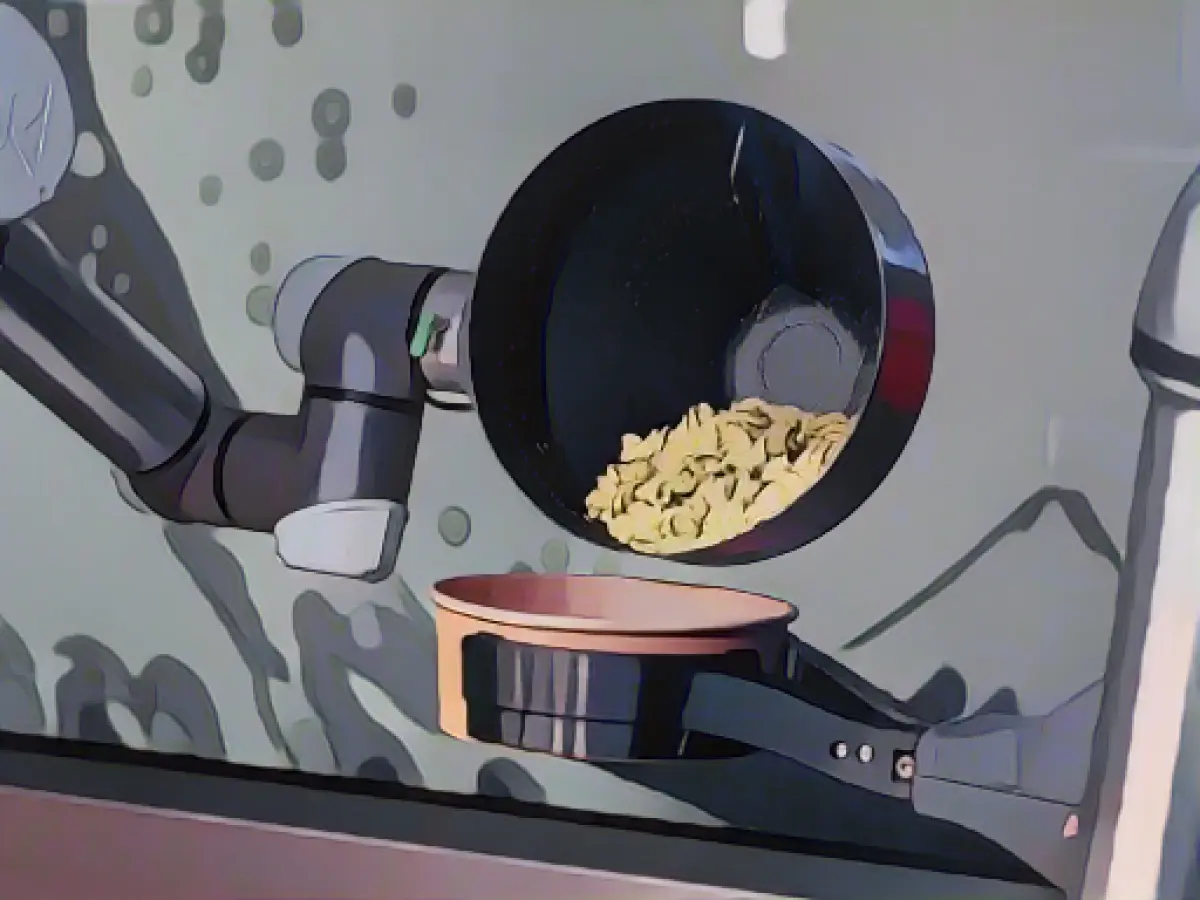Innovating the Hospitality Industry with Automated Chefs
At Lieblingsplatz hotel in Grömitz, close to Lübeck, a new culinary maestro has taken over - and it's not human. After mastering pasta and rice dishes, this chef-bot is equally adept at cooking currywurst and sushi bowls, all thanks to its four-by-two-metre machine. Niels Battenfeld, the hotelier, proudly spent €250,000 on this robot, marking a breakthrough in the hospitality industry's battle against the skilled worker shortage.
Initially, guests are often puzzled, acknowledges Battenfeld. But second thoughts soon give way to acceptance. Orders are placed using an app or displayed on the machine itself, which then prepares the ordered meals, mimicking a human chef's process. This mechanized chef may not be as versatile as a human chefs, but it can churn out 100 portions an hour. Its menu might be minuscule at the moment, offering six dishes, but it's expected to expand significantly to 15-20 options.
The German Hotel and Restaurant Association (Dehoga) estimates a nationwide shortage of 65,000 employees in the hospitality industry. Hotels and restaurants are left scrambling, resorting to different measures to attract and retain workers. One landhotel in Soderstorf has gone as far as offering up to €11,000 in bonuses to fresh chefs and late-night service staff as incentives. Another Munich-based hotel chain introduces a unique practice of offering free tattoos to new applicants.
Tourism management expert Enno Schmoll, from Jade University of Applied Sciences, doesn't think that such straight rewards are sustainable solutions. He suggests that paying for soft skills, like team spirit and working conditions, would make a larger impact on retention rates. He finds the idea of a four-day working week convincing in bridging the labor gap, pointing out that many companies that have implemented it, no longer suffer a shortage of employees.
Still, Schmoll disagrees that automated robots will completely bridge that gap. He wants to preserve the human touch during his vacations. "You can't replace that with robots." Meanwhile, Battenfeld is convinced that the robot chef will soon follow the automated check-in at Lieblingsplatz. Despite reduced staff needs, he insists that the human element is crucial to the hotel's soul and is vital for maintaining its charm.
The cooking robot at Lieblingsplatz hotel is a pioneering move in the hospitality industry, addressing the skilled labor shortage head-on. Speed, consistency, and cost savings are its main advantages, as the machine tricks out trays while its human counterparts focus on quality control and menu innovation. Other hotels and restaurants are experimenting with similar solutions, all spurred by the desire to address the labor crunch without compromising on the guest experience.
Relevant Insights
- Superior Efficiency: Automated cooking robots can prepare up to 100 portions per hour, which significantly improves efficiency and productivity for hotels and restaurants.
- Consistent Performance: The use of automation allows for consistent performance, reducing errors and ensuring uniformity in every meal, which customers value.
- Cost Savings: These machines hold down labor costs, lowering training and turnover expenses, facilitating lower labor dependency in the industry.
- Expanding Opportunities: Automating culinary tasks opens up new positions and roles, appealing to workers seeking changes in their existing roles in the hospitality industry.
[1]
[2]
[3]
[4]
[5]








